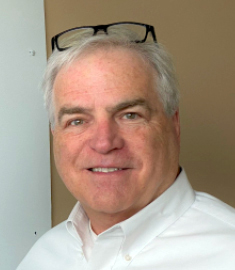Surge Protector
About 35 years ago, Mark Hogan left a successful career as an accountant to pursue a job in freight transportation. He hasn’t looked back.
Mark Hogan had been working in the freight industry for 12 years when he and colleague Paul Schultz decided to start a non-asset-based third-party logistics (3PL) firm. They saw an opportunity to serve shippers who needed extra capacity, outside their core carriers, during seasonal volume surges.
A large shipper might tender loads directly with anywhere from 10 to 100 or more core carriers. “But there’s always a portion of their freight for which they need to source capacity from good niche carriers through a reliable 3PL,” Hogan says.
With financing from Roger Crouch, founder and chairman of MNX Trucking, Hogan and Schultz founded Kansas City-based UTXL in 1997. Schultz has since retired as president, but Hogan continues to serve as CEO. He recently offered insight into how UTXL operates and how he leads the team.
IL: Why did you move from accounting into the freight industry?
I’d been working for five years as an accountant in the oil and gas industry when I went to Chicago to visit my sister. She introduced me to her friend Beth. That was 35 years ago, and Beth and I have been married for 34 years. In those early days, when I started thinking about moving to Chicago, I realized there’s no oil or gas there. I had to find another kind of work.
I’d read John Naisbitt’s book Megatrends, which describes how economies evolve from agriculture to manufacturing to service businesses. I’d spent summers in high school and college loading and unloading trucks and I enjoyed that. Also, my dad managed a warehouse, so that world was familiar to me. When a friend who worked for an airfreight company at O’Hare Airport mentioned an opening there, I decided to apply. And I got the job.
IL: What did you find so appealing during those summers at the trucking company?
Just when I thought I’d seen everything you could possibly ship in a trailer, I’d open another one and say, “I can’t believe it! There’s an airplane fuselage!” I enjoyed the work, and the pay was good.
IL: Why do shippers with core carrier programs need a 3PL to help during volume surges?
Back when we started UTXL shippers were trying to reduce their carrier bases and were looking at larger carriers that could handle more lanes, rather than hundreds of small, niche carriers. Many good carriers got absorbed by the larger ones, and the big carriers grew even bigger. But there were inefficiencies such as a lot of deadhead and driver turnover.
So we started a freight brokerage focused on creating efficiencies through good service and communication between shippers and carriers, especially shippers that tend to shy away from small to mid-sized carriers.
When a shipper needs capacity to help with a surge, they might call on thousands of viable full-truckload carriers. For the recent holiday peak, we used more than 400 team carriers; almost all would be invisible to the large carriers we serve. Because we work with those carriers year round, we have the established relationships and communications channels in place to make their services available to customers who might need them for only a few weeks.
IL: What challenges do the carriers in your network face, and how does UTXL help mitigate those issues?
The biggest challenge is that small to mid-sized carriers depend mostly on brokers for the freight they haul. They need honest communications from those brokers, especially on multistop loads. They need to know that what we tell them is true. We’re careful not to overcommit to shippers or carriers. We make sure everybody knows what’s expected of each party, including us. And we operate 24/7. Almost half of our freight is booked between 6 p.m. and 6 a.m.
IL: What qualities make you an effective CEO?
While 35 years of experience in freight transportation helps, I also recognize the value of teamwork, documented processes, and automated checks and balances. If something breaks, we can look at it and ask, “Did we not follow the process? Do we need training? Do we need to add a process, or fix one?” All the technology tools we’ve implemented are designed to enforce people’s compliance with our processes. As CEO, my job is to set the culture and make sure everyone operates as a team.
IL: Which business leader inspires you?
Sam Walton, the founder of Walmart. We have a picture of him in our office with this quote: “The key to our success, though, must be that we all truly embrace the philosophy of being servant leaders, both with our customers and each other.”
IL: What makes you excited about waking up and going to work each morning?
No matter how large their fleets are, a lot of asset-based carriers end up saying no to more freight opportunities than they say yes to—it’s not the right lane, it doesn’t get their drivers home, it doesn’t get their equipment to maintenance facilities, or they don’t have good backhauls. Because UTXL works with so many great niche carriers, I get to say yes to a lot more opportunities than I could in the past.
IL: Outside of work, how do you like to spend your time?
Our youngest daughter graduates college in May 2020, so my wife and I will be empty nesters. We both work with our children’s ministry in church on Sunday. Normally my brain is focused on five things at once, but when I work with the kids, I’m not thinking about anything but what we’re doing. We like to travel, and we hike and walk a lot. I also play golf. One of the most satisfying things I do in our business is participate in customers’ golf outings to raise money for children’s causes.

